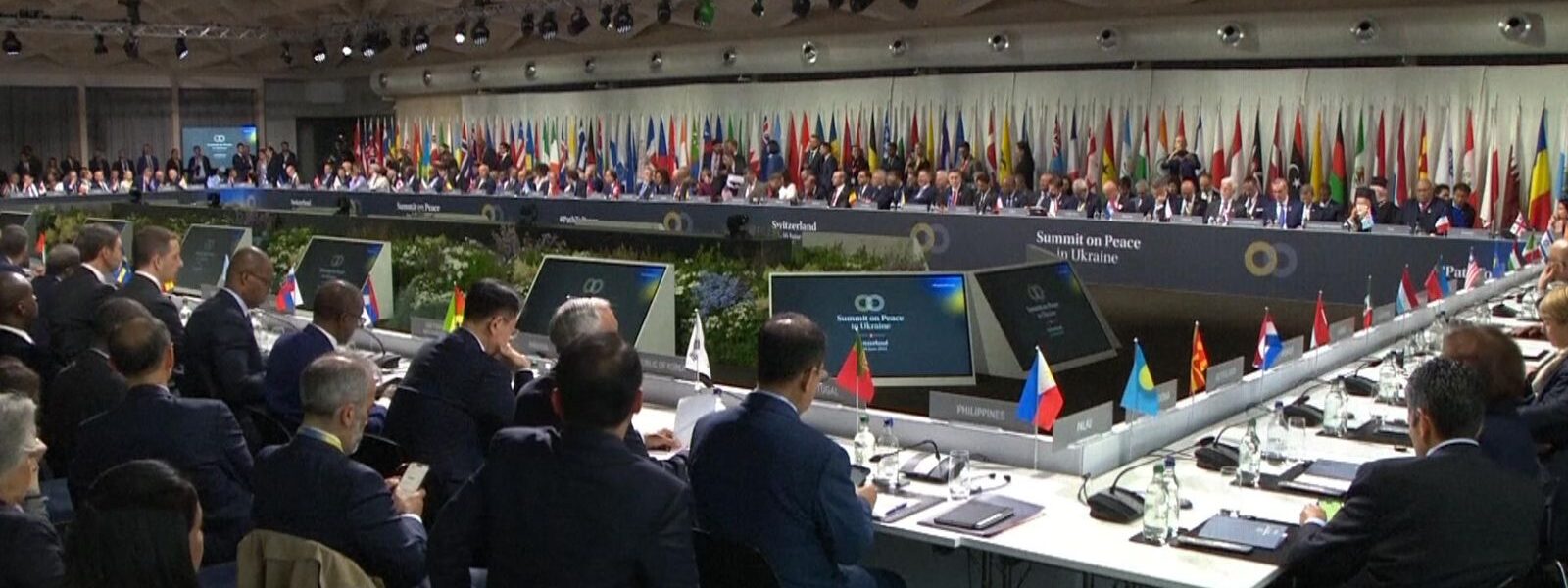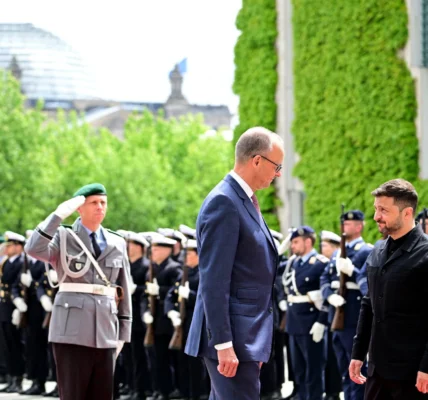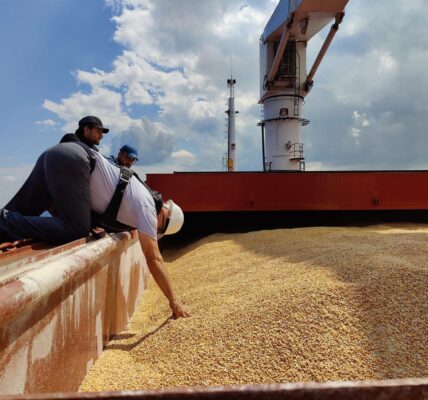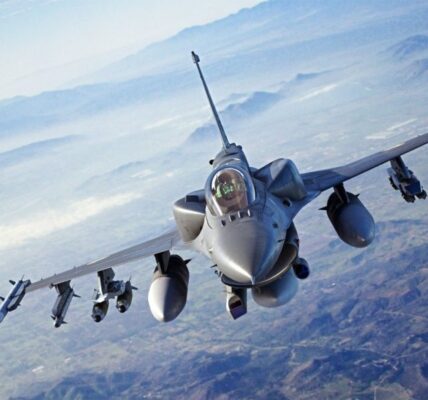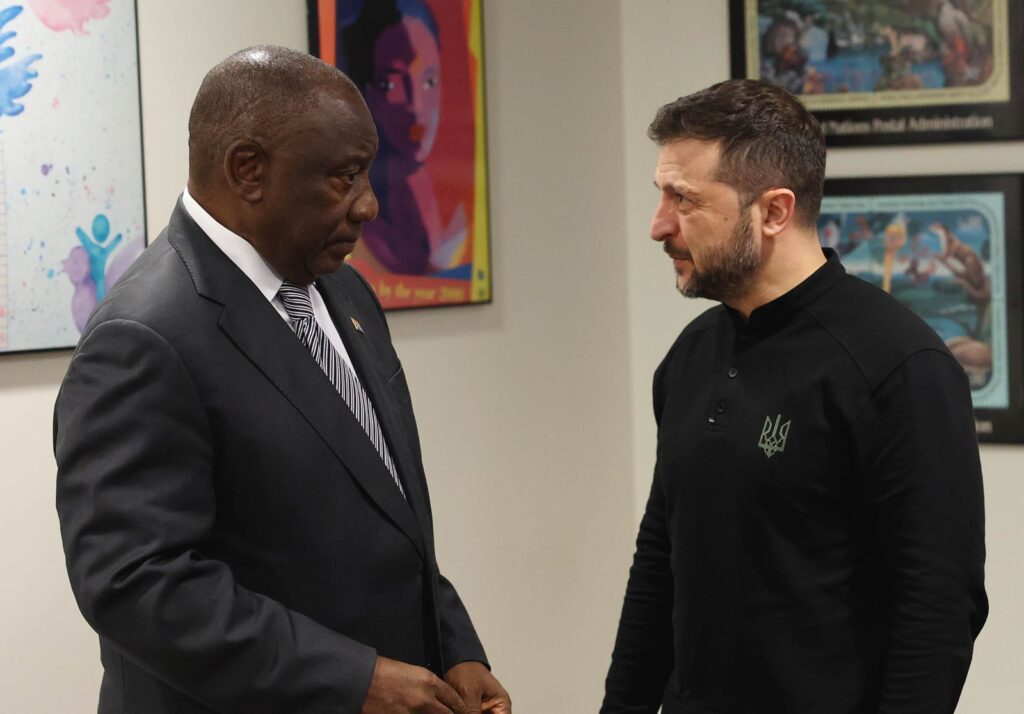
President Volodymyr Zelensky has met with his South African counterpart, Cyril Ramaphosa, on the sidelines of the BRICS summit. In a Facebook post, Zelensky said the talks were focused on discussing preparations for a second peace summit.
“I spoke about the implementation of the decisions made during the first peace summit and the preparations for the second Summit,” Zelensky said on Ukrinform. “We also discussed ways to expand the representation of the Global South.”
President Ramaphosa’s team also released a video of the meeting.
Zelensky stressed that “only the unity of world leaders can force Putin to stop the war, while all peace proposals based on freezing the war have no prospects.”
Commenting on the Ramaphosa-Zelensky meeting, the Democratic Alliance Shadow Minister of International Relations and Cooperation, Emma Powell, said that political leaders such as President Ramaphosa, who are invested in mediating an end to the war which, “is a clear cut illegal occupation of a sovereign state, must accept that anything less than a full withdrawal of troops by Russia will simply lead to a frozen conflict that will continue to destabilise the region for decades to come.”
The territorial sovereignty of Ukraine is simply not up for negotiation – and that includes Crimea, Powell added.
“The UN Charter makes that clear. In order for there to be peace, Russia must withdraw all troops, cease hostilities, and release the stolen Ukrainian children.”
Chris Vandome, a senior research fellow at Chatham House, told National Security News that the latest meeting between Zelensky and Ramaphosa was “an important marker of continued engagement.”
“It was significant in demonstrating that, despite some disagreement, both partners see this as an important relationship following South Africa’s rejection of the outcomes of Zelensky’s peace summit held earlier this year,” Vandome added.
Ramaphosa did not attend the Ukraine Global Peace Summit in Switzerland in June this year and sent his representative, Sydney Mufamadi, instead. South Africa rejected the summit communiqué that was adopted by most of the 101 nations and international organisations that participated. Eleven African nations signed the communiqué, including Kenya and Ghana.
Other countries that refused to sign included Saudi Arabia, India, Thailand, Indonesia, Mexico, Brazil, and the United Arab Emirates. China and some smaller nations stayed away from the summit because Russia was not invited.
Zelensky has since launched a bid to include more of the BRICS countries in his second summit. He met Indian Prime Minister Narendra Modi in New York on Monday, discussing the pathway to a peace deal. Ukrainian officials indicated that India was Kyiv’s big hope to reach a peace pact.
Vandome says the outcomes of the first peace summit sent a clear message to Zelensky to court African leaders and others in the Global South.
“The inclusion of discussion of wheat exports,” he said, “was a nod to the importance of this marker for many developing nations.” However, Vandome believes that the exclusion of Russia undermined Africa’s position in the dialogue, and the inclusion of Israel proved to be a further point of contention.
South Africa needs to be clear and consistent on foreign policy
The Ramaphosa government can be a strong advocate for new forms of “mini-lateralism” and BRICS, according to Vandome, but it “has fallen short on this message at times,” and has been criticised for its inconsistency and lack of clarity.
“A clear articulation of its principles and coherent positioning will make it a strong advocate for dialogue and cooperation at a time of multi-polar factionalism,” he added.
Earlier efforts by Ramaphosa to play a role in peace negotiations in Ukraine have fallen flat. While Ramaphosa hailed a trip by African leaders to Ukraine and Russia in June 2023 as “historic,” saying that it was the first time African leaders have embarked on a peace mission beyond the continent, it achieved very little.
The trip hit a snag when South Africa’s security contingent was grounded in Poland as they were traveling through on their way to Ukraine. Polish authorities said the plane was detained for nearly 24 hours on the tarmac due to a failure to comply with standard entry procedures and that there were dangerous goods on board the plane.
South Africa has indicated, by way of its Minister of International Relations and Cooperation, Ronald Lamola, that it will be participating in Zelensky’s second peace summit in November this year.
President Zelensky has indicated that Russia will also be invited to attend the second global peace summit in Switzerland.

